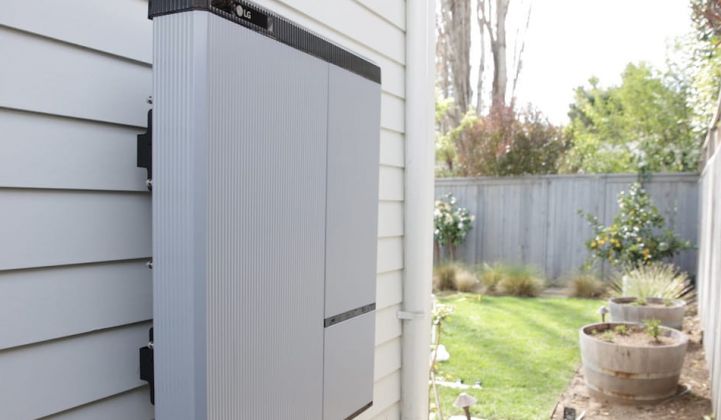Battery manufacturer LG Chem has launched a recall of some of its Resu 10H residential battery products in the interest of fire safety.
The recall affects certain battery systems containing cells from specific lots produced in 2017 and 2018, according to a letter from Peter Gibson, who leads LG Chem's North American energy storage business. The letter, dated November 29, explains that those cells are at risk of overheating, which could lead to fires and dangerous smoke.
"LG Chem has received five reports of thermal events in the United States causing limited property damage," the letter notes. "There have been no reported injuries. LG Chem is undertaking this voluntary action as part of its continued commitment to product safety and to providing the highest quality and service to its customers."
Customers with one of the affected units will get a free replacement containing "state-of-the-art" cells manufactured in 2020. LG Chem did not respond to a request for comment by the time of publication.
The Resu has been a prominent player in the small but growing residential energy storage market, which just notched its sixth consecutive quarterly installation record. It has been a central component of solar installer Sunrun's build-out of solar-plus-storage, which reached 13,000 homes as of November. The Resu was also available through distributors such as CED Greentech and BayWa r.e.
The recall affects approximately 5 percent of Sunrun's BrightBox battery installations, spokesperson Wyatt Semanek noted in an email.
"We have already started proactively replacing batteries impacted by the recall and have credited customers for the brief downtime," he noted. "Home solar and battery systems that are properly designed, installed and maintained have a long track record of system safety."
Batteries come with risks, but the recall shows the value of choosing a supplier that can stand by its warranty, said Barry Cinnamon, whose company Cinnamon Energy Systems has installed LG Chem batteries with SolarEdge inverters since 2017. Some of those units are on the recall list, but "we've had zero problems" with them so far, he said.
"I find it interesting and relieving that a company like LG Chem would step up to the plate and say, 'There's a potential problem, we're going to address that problem, and we're not going to run away or hide,'" Cinnamon told Greentech Media.
That approach contrasts to less reputable suppliers in the solar or inverter business that have closed up shop when their equipment had problems, he added.
Dealing with lithium-ion battery fire risks
This is not the first time LG Chem has been in the news for recalls involving its battery cells.
In recent weeks, automakers GM and Hyundai each recalled approximately 70,000 electric vehicles that contained LG Chem batteries, after several of those cars caught fire. The exact cause of those fires is under investigation.
LG Chem also supplied the utility-scale McMicken battery in Arizona, which entered thermal runaway and exploded in April 2019, injuring four firefighters. An investigation by project owner Arizona Public Service concluded that cell failure kicked off the chain of events that led to the explosion. Insufficient fire suppression and lack of ventilation for explosive gases in the battery enclosure exacerbated the incident.
LG Chem published its own investigation into the root cause, challenging the cell failure conclusion and suggesting that external causes kicked off the thermal runaway.
The storage industry has already improved safety protocols since the McMicken era. LG Chem subsequently won the confidence of developer LS Power to supply the largest grid battery in the world, the Gateway project in San Diego County.
Many technologists believe that more could be done to improve battery safety ahead of the expected influx of electric cars and grid storage devices. Startup Cadenza Innovation recently installed a new lithium-ion supercell technology in New York that is designed to thwart fires in the event of cell failure.




